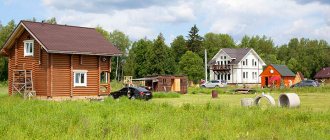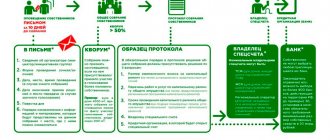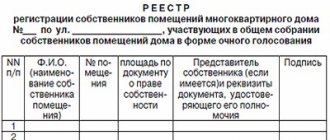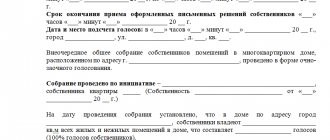Activities
The activities of the HOA are divided into the following areas:
- financial;
- economic;
- entrepreneurial.
The work of the partnership is divided into many different areas. The main list includes management of the common property of residents. If we consider the functions of the HOA in detail, the main ones can be highlighted:
- Content.
- Routine repairs carried out as planned and in the process of any problems arising.
- Providing quality utility services (read how they are paid here).
When compiling a list of works, it will look like this:
- Ensuring the uninterrupted operation of a residential building with cold and hot water, drainage, and heating supply in winter.
- Maintain communications in proper condition.
- Drawing up plans and their implementation regarding the technical condition of the local area.
- Conclusion of contracts with contractors (maintenance and performance of various works).
- Organization for carrying out repairs.
- Maintaining a residential building in proper condition (lighting, timely cleaning of entrances and local areas, repair work).
- Correct maintenance of technical documentation.
- Reception of the population and consideration of complaints, elimination of deficiencies specified in appeals.
- Timely payment of resources to supplying organizations.
We talked in more detail about what an HOA is and what the essence of its activities is here.
What is it connected with?
Like any other legal entity. persons, the board of the association has its own rights and obligations to the residents . They are described in detail in Art. No. 137, 138 ZhK. Has the right to:
- Conclude agreements for home maintenance.
- Sign contracts with suppliers for the provision of utility services.
- Prepare estimates for a specific time period.
- Include expenses to improve maintenance in the home.
You will learn more about what responsibilities the HOA has in relation to the owners, as well as what rights it is endowed with, in a separate publication.
Among the main expenses of the partnership:
- Cash expenses for cap. building renovation.
- Expenses for ongoing repair work.
- Cash expenses to meet the needs of resident residents. For example, installing a sports or children's playground.
- Providing certain services to members of the partnership.
- Formalize credit relationships to perform any serious work. It should be remembered that money is borrowed for a certain time and at interest, so everything must be returned on time and in full.
- Sell, rent out some parts of the common property that belongs to the partnership. We talked about how an HOA can use its non-residential premises here.
Board members have every right:
- Rent out (temporary use) all or partial area belonging to the common property. The money received from renting should go entirely to the needs of this house.
- Carry out work on reconstruction and modernization of common property. It should be remembered that all types of construction activities must be carried out taking into account all legal requirements.
- Purchase or rent premises that will significantly improve your comfort. All purchased real estate must be registered as shared ownership of each owner. You can purchase land plots for construction with the necessary premises.
- Carry out construction work on the construction of buildings.
- To meet the various needs of the members of the cooperative, make various transactions (they must be raised for discussion by the board members).
IMPORTANT. All of the above actions must be carried out in the interests of the owners of the premises and be justified from the economic side: meetings are held, minutes and various documents relating to economic efficiency are drawn up.
Areas of activity of the HOA
The law defines specific types of economic activity of the partnership:
- An HOA can repair, maintain and operate property, either on its own or by engaging third-party specialists, by concluding contracts with them for work and provision of services;
- The HOA has the right to transfer the property of the house to other persons for a certain time. Such a decision is made exclusively at the general meeting of owners. The meeting participants agree on what areas can be alienated, to whom, and for how long. At the meeting, issues of payment for the transferred premises are discussed.
- The HOA has the right to build premises and new facilities available to all its members. This type of activity includes equipping the local area of the house with a playground, erecting lawn fences, etc.
Other functions and powers
Has the right to:
- Conclude agreements for the provision of utilities, repairs and others leading to comfortable living.
- Calculate an estimate for 12 months, determine the amount for current repairs and maintenance, and for major repairs. Transfer funds to the reserve fund and expenses of various nature, agreed upon by the general meeting.
- Determine the volume of payments and all kinds of contributions for each owner. As a rule, the amount of payment is taken from the total area of the premises in which its owner lives.
- According to the law, take out loans from banking institutions and use them for their intended purpose.
- Rent out rooms and other premises belonging to the partnership. The funds received should also be used to improve housing in this premises.
- In accordance with the procedure established by law, redevelop some part of the common property. It should be remembered that before starting such work, it is imperative to write an application and obtain permitting documentation for such types of activities.
- According to the decision of the general meeting, construction should be carried out.
- Conclude other transactions.
ATTENTION . This organization is obliged to carry out activities only in the interests of the owners of a particular premises.
What is outside the jurisdiction of the homeowners association?
If a partnership is chosen, management members are required to raise and resolve all issues only at a general meeting. It is strictly forbidden to solve problems of any nature without holding a general meeting of all owners. Each of them is obliged to express their personal attitude to what is happening in the form of a signature in the “for”, “against” or “abstained” columns.
Wages are set at the general meeting. Board members do not have the right to determine their own salaries .
Regardless of how payments for maintenance and current accrual were made, you cannot leave the house without heat in the winter, without supplying hot or cold water (with the exception of repair work to eliminate emergency situations or scheduled work to change valves or valves). This is clearly stated in the Housing Code.
Article 135 of the RF Housing Code. Homeowners Association
1. In accordance with the Civil Code of the Russian Federation, non-profit organizations are legal entities that do not have profit-making as their main goal and do not distribute the profit received among its participants. Legal regulation of the procedure for the creation and activities of non-profit organizations is determined by the Civil Code of the Russian Federation, as well as special laws, norms of the Federal Law of January 12, 1996 N 7-FZ “On Non-Profit Organizations”.
Non-profit organizations can be created to achieve a wide variety of socially beneficial goals, among which the goals of generating profit and distributing it among the participants of the organization cannot be the main ones. A homeowners' association is created for joint management of a complex of real estate in an apartment building, ensuring the operation of this complex, ownership, use and, within the limits established by law, disposal of common property in an apartment building.
A homeowners' association is an association of owners of premises in an apartment building. In this case, the owners of premises can be individuals and legal entities (commercial and non-profit organizations), including public owners (Russian Federation, constituent entities of the Russian Federation, municipalities).
In accordance with Article 36 of this Code, the owners of premises in an apartment building own, by right of common shared ownership, premises in this building that are not parts of apartments and are intended to serve more than one premises in this building, including inter-apartment landings, stairs, elevators, and other shafts, corridors, technical floors, attics, basements in which there are engineering communications, other equipment serving more than one room in a given house (technical basements), as well as roofs enclosing load-bearing and non-load-bearing structures of a given house, mechanical, electrical, sanitary -technical and other equipment located in this house outside or inside the premises and serving more than one premises, the land plot on which this house is located, with elements of landscaping and landscaping, and other objects intended for the maintenance, operation and improvement of this house, located on the specified land plot (hereinafter referred to as the common property in the apartment building).
A homeowners' association can dispose of common property in an apartment building only by transferring it for use (paid or gratuitous) in compliance with the requirements of Art. 36 of the Code and Art. 246 of the Civil Code of the Russian Federation.
In accordance with Part 4 of Article 37 of this Code, the owner of premises in an apartment building does not have the right to:
- to allocate in kind your share in the right of common ownership of common property in an apartment building;
- alienate one’s share in the right of common ownership of common property in an apartment building, as well as perform other actions entailing the transfer of this share separately from the right of ownership of the specified premises.
2. The constituent document of a homeowners’ association is its charter, which is approved by the minutes of the meeting of the founders of this partnership. The procedure for convening and holding a constituent meeting of future members of a homeowners' association coincides with the procedure established for convening and holding a general meeting of owners of premises in an apartment building (see Articles 45 - 48 of this Code and the commentary thereto).
The charter must meet the general requirements for constituent documents of legal entities (clause 2 of article 52 of the Civil Code of the Russian Federation). The charter of the homeowners' association must define the name of the homeowners' association, its location, the procedure for managing the activities of the homeowners' association, the subject and goals of the activities of this association, the procedure for both admission and withdrawal from the partnership, rules for exclusion from the partnership, and also contain other information provided for by this Code.
Amendments to the charter of a homeowners' association are subject to state registration in the manner established by the Federal Law "On State Registration of Legal Entities and Individual Entrepreneurs."
3. A homeowners’ association can be formed in an apartment building, where all owners of residential premises (apartments, rooms, parts of apartments and parts of rooms) do not have to be members of the partnership.
Membership in the homeowners' association is voluntary and is established by the decision of each owner of the residential premises. This article only sets the condition that the number of members of the homeowners’ association who created this partnership must exceed fifty percent of the votes of the total number of votes of the owners of premises in an apartment building.
However, the number of votes may not coincide with the number of owners of residential premises, since one residential premises may be owned by several persons. In accordance with Part 3 of Article 48 of this Code, the number of votes that each owner of premises in an apartment building has at a general meeting of owners of premises in this building is proportional to his share in the right of common ownership of common property in this building. At the same time, according to Part 1 of Article 37 of this Code, the share in the right of common ownership of common property in an apartment building of the owner of the premises in this building is proportional to the size of the total area of the specified premises.
Thus, to calculate the number of votes belonging to each owner of a residential premises, it is most convenient to select a certain number of square meters as a criterion.
4. A homeowners’ association is created for joint management of a complex of real estate in an apartment building, ensuring the operation of this complex, ownership, use and, within the limits established by law, disposal of common property in an apartment building. The law does not limit the period of activity of a partnership. As long as a complex of real estate exists, the need for its operation and repair will also not disappear. If the conditions for its creation remain unchanged, there are no restrictions in the charter and the existence of real estate, the activities of the homeowners’ association can continue.
5. In accordance with the Civil Code of the Russian Federation (Article 51), a legal entity is subject to state registration with the justice authorities in the manner determined by the law on registration of legal entities. State registration data is included in the unified state register of legal entities, open to the public. A legal entity is considered created from the moment of its state registration.
State registration of homeowners' associations is carried out in accordance with Federal Law No. 129-FZ of 08.08.2001 “On state registration of legal entities and individual entrepreneurs”.
The list of documents required for state registration of a housing cooperative includes the following documents:
- 1) an application for state registration of a housing cooperative in form 11001, approved by Decree of the Government of the Russian Federation of June 19, 2002 N 439 (as amended by Decree of the Government of the Russian Federation of February 26, 2004 N 110).
- 2) minutes of the general meeting of the founders of the homeowners’ association, signed by all members of this association;
- 3) the charter of the homeowners association, provided in two copies (one remains with the registration authority);
- 4) a receipt for payment of the state duty (today it is 2000 rubles in accordance with Article 333.33 of the Tax Code of the Russian Federation).
The application submitted to the registration authority is certified by the signature of an authorized person (applicant), the authenticity of which must be certified by a notary. In this case, the applicant indicates his passport data or, in accordance with the legislation of the Russian Federation, data of another identification document and taxpayer identification number (if any).
During the state registration of a homeowners' association upon its creation, the following individuals may be applicants:
- founder of a homeowners association;
- the head of a legal entity acting as the founder of a registered homeowners association;
- another person acting on the basis of the authority provided for by federal law, or an act of a specially authorized state body, or an act of a local government body.
Documents are provided to the registering authority directly or sent by post with a declared value when forwarded and a description of the contents.
The applicant is given a receipt for receipt of documents indicating the list and date of their receipt by the registering authority if the documents are submitted to the registering authority directly by the applicant. The receipt must be issued on the day the registration authority receives the documents. Otherwise, including when the registering authority receives documents sent by mail, a receipt is sent within the business day following the day the registration authority receives the documents, to the postal address specified by the applicant with a return receipt.
The registration authority does not have the right to require the submission of documents other than the documents established by the specified Federal Law “On State Registration of Legal Entities and Individual Entrepreneurs”.
The homeowners association has a seal with its name, a current and other bank account, and other details.
According to paragraph 1 of Art. 54 of the Civil Code of the Russian Federation and clause 1 of Art. 4 of the Federal Law “On Non-Profit Organizations”, the name of a non-profit organization must contain an indication of its organizational and legal form and the nature of its activities.
The name of the homeowners association should not leave any doubt as to its organizational and legal form and the purposes of its creation. In this regard, the name includes an indication of the form of this non-profit legal entity and at the same time the scope of its activity - “homeowners’ association.”
In accordance with paragraph 2 of Article 54 of the Civil Code of the Russian Federation, the location of a legal entity is determined by the place of its state registration. State registration of a legal entity is carried out at the location of its permanent executive body, and in the absence of a permanent executive body - another body or person authorized to act on behalf of the legal entity without a power of attorney. Since the main activities of a homeowners association are carried out at the location of the real estate, the owners of which are members of the partnership, the registration of the homeowners association is carried out at the location of the real estate.
6. The property of a homeowners’ association, consisting of introductory, targeted, periodic and other contributions of its members, the amount and procedure for making which must be determined in the charter of the partnership, or from property acquired by it on other legal grounds, belongs to the partnership by right of ownership (p. 3, Article 213 of the Civil Code of the Russian Federation). Members of the partnership do not have the right to transfer their shares in the common property of an apartment building to the ownership of the partnership as entrance fees (see part 4 of article 37 of the Code, paragraph 2 of article 290 of the Civil Code of the Russian Federation).
The homeowners association is liable for its obligations with all the property it owns. However, the homeowners association is not responsible for the obligations of the members of the partnership. However, the members of the partnership are not subject to liability for the obligations of the partnership. Members of a homeowners' association will be liable for the obligations of the partnership only in the event of incomplete payment of the relevant mandatory contributions, in the amount of the unpaid portion of the contributions, the amount and procedure for making which is determined by the charter of the partnership.
Thus, there is a need to form partnership property to effectively conduct the main activity and ensure the rights of creditors when carrying out business activities corresponding to the main one. Only the presence of one's own property can ensure independent property liability of the homeowners' association.





